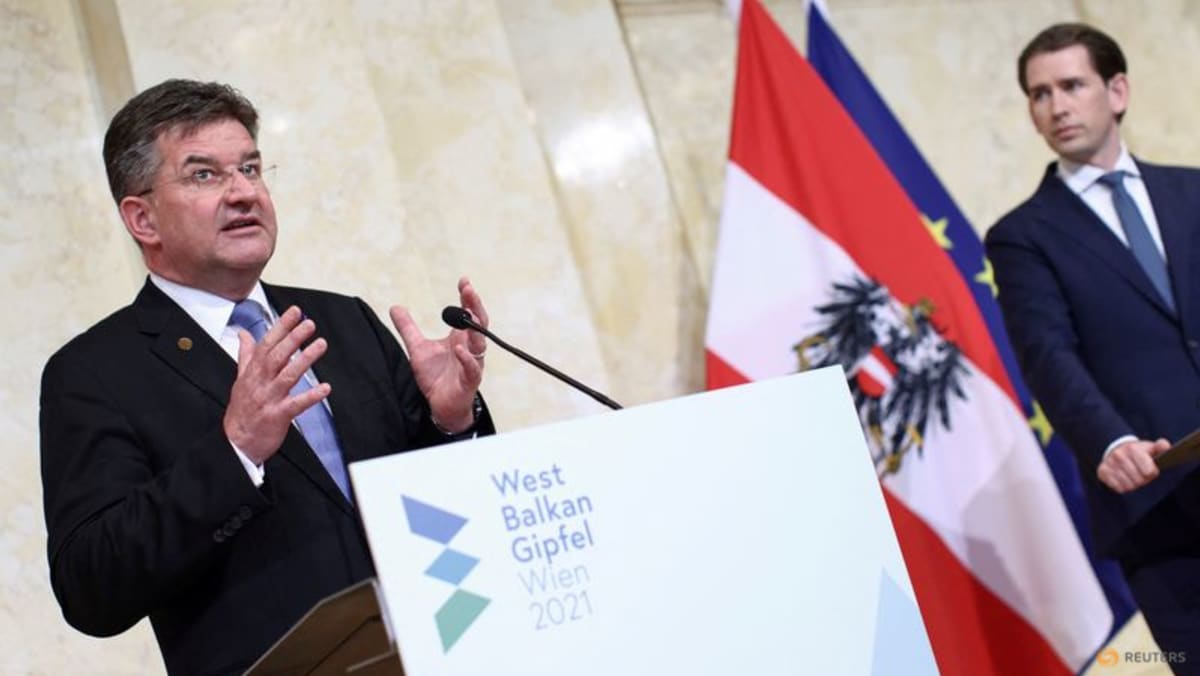Sign deal or face consequences, EU envoy tells Kosovo, Serbia
PRISTINA: Kosovo and Serbia should state by March whether they accept an international plan to normalise relations or face repercussions from the European Union and United States, the EU’s envoy on the matter said on Wednesday (Jan 25).
Kosovo declared independence from Serbia in 2008, a decade after a guerrilla uprising against Belgrade’s repressive rule. Over the past decade, the two have been holding normalisation talks under EU mediation, with a successful outcome key to realising the aspirations of both to join the wealthy bloc.
Last week EU, US, German, French and Italian envoys have met leaders of both countries to try to convince them to sign an 11-point deal meant to defuse tensions lingering since the 1998-99 conflict.
Western powers have become impatient with the intransigence of both sides, fearing that frequent strife between minority Serbs in north Kosovo and the majority ethnic-Albanian government of Pristina could degenerate into a wider conflict.
Asked by Pristina-based Klan Kosova TV in an interview what would happen if the plan was not accepted by one party, EU envoy Miroslav Lajcak said: “The international community will respond accordingly and we will support one party more and will shorten support for the other party.”
Lajcak said if either country expressly rejected the deal they would suffer a drop in political and economic support, as well as a reduction in new investment, by the West.
“There is a natural deadline or timetable because by March we will know whether we are progressing or not and if we are not progressing we will know why we are not progressing, who is responsible for that,” he said.
“PART OF THE SOLUTION, OR PROBLEM”?
“We are all part of the wider international community and it is really important whether you are seen as a part of the solution or part of the problem, because this is then how you are treated by the international community.”
The United States and EU have been by far Kosovo’s biggest political and financial backers since independence, but Pristina has been denied a seat at the United Nations due to objections from Serbia, its ally Russia and some other countries.
Kosovo Prime Minister Albin Kurti has signalled that he might accept the 11-point plan but not a 2013 EU-brokered pact, approved before he took office, to create an association of semi-autonomous, Serb-majority municipalities.
The plan requires both sides to implement previous deals but Kurti says the 2013 accord would cripple Kosovo’s sovereignty by creating a mini-state within a state – a position dismissed by Western mediators.
After meeting the five Western envoys last week, Serbian President Aleksandar Vucic did not spell out whether Belgrade would now approve the plan, but said in a televised address it would be “economically and politically” lost without EU links.
Vucic said the envoys had told him Serbia would suffer if it seek to clinch a deal with Kosovo to resolve their differences.
Under the plan, Serbia would not be required to recognise the independence of its former province but would have to stop lobbying against Kosovo’s membership in international bodies.
The two countries would also have to open representative offices in each other’s capitals and work on resolving outstanding issues.
For all the latest world News Click Here

